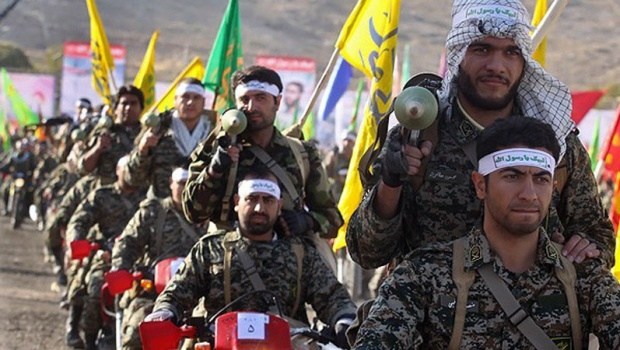Iraq has become a central battleground for Iranian-backed militias, with groups like Hezbollah, Kata’ib Hezbollah, and Saraya al-Khorasani gaining considerable influence. These militias, operating within a frail Iraqi security framework, are key players in expanding Iran’s economic and military reach in the region. By exploiting Iraq’s weak governance and deteriorating security, they help Tehran circumvent economic sanctions and bolster the Iranian and Hezbollah economies.
Kata’ib Hezbollah: Funded, armed, and trained by Iran, Kata’ib Hezbollah began as a militia fighting American forces in Iraq but evolved into a self-sufficient entity. Under the leadership of Abu Mahdi al-Muhandis, who was killed in a U.S. drone strike, the group has transformed into an economic powerhouse. Kata’ib Hezbollah controls lucrative criminal activities, including drug smuggling, extortion, and illegal oil sales. They operate across southern Iraq and benefit from a range of smuggling activities, including oil trafficking from Iraq’s oil fields to Iran.
Asa’ib Ahl al-Haq: Initially supported by Iran, Asa’ib Ahl al-Haq has gradually become financially independent, especially after its split from the Mahdi Army. This group engages in a variety of illicit activities, including extortion, kidnappings, and oil smuggling. The militia also operates its own oil smuggling routes, moving crude oil from Iraq’s northern regions to Iran, further securing its financial independence.
Saraya al-Khorasani: This militia, part of the larger Popular Mobilization Forces (PMF), is directly linked to Iran’s Revolutionary Guard Corps (IRGC). Saraya al-Khorasani raises funds through extortion, kidnapping, and controlling strategic checkpoints. They also benefit from significant political influence, with leaders occupying key government positions, enabling them to exploit Iraq’s resources and bypass legal regulations.
The militias thrive by controlling Iraq’s vital economic sectors. Kata’ib Hezbollah, for instance, has engaged in smuggling sports equipment and other goods from Syria, circumventing Iraq’s customs tariffs. The group also profits from narcotics trade, notably the smuggling of narcotic pills from Iran into Iraq. Similarly, Asa’ib Ahl al-Haq controls key oil smuggling routes, including the Qayyarah refinery, and uses these funds to strengthen its military capabilities.
Militias also extract funds from government-controlled checkpoints across Iraq. The Al-Safra checkpoint in Diyala province, for example, is reported to generate up to one million dollars daily through bribes and taxes imposed on truckers. These checkpoints function as financial lifelines for the militias, which use the proceeds to finance military operations and secure their position in Iraq’s economic landscape.
The rise of these Iranian-backed militias has led to a substantial shift in Iraq’s political and financial systems. Key figures within the militias have become deeply embedded in Iraq’s government, with their influence over key state institutions allowing them to secure funds through state resources. Militias like Kata’ib Hezbollah and Asa’ib Ahl al-Haq are known to use political bribes, corruption, and even military threats to secure government contracts and illicit gains. These groups have also been involved in money laundering, with accusations that they funnel funds from Iranian-backed entities into Iraq’s banking sector to circumvent international sanctions.
One example of this is the Islamic Bilad Bank in Iraq, linked to the militias and sanctioned by the U.S. for facilitating the transfer of funds from Tehran to Hezbollah. These activities put Iraq’s financial system at risk, further entrenching the influence of militias and Iran in the country.
The ability of Iranian militias in Iraq to fund themselves through illicit activities—ranging from oil smuggling to kidnapping—has allowed Iran to retain significant leverage over both Iraq’s political and economic systems. The militias have used their financial clout to bypass U.S. sanctions, support the IRGC, and further Iran’s regional ambitions, including in Syria.
With Iraq’s governance increasingly dominated by militias, Tehran is ensuring that Iraq remains a crucial component in its regional strategy. The militias’ rise represents not just a security challenge for Iraq, but a geopolitical one that threatens the stability of the entire region.
Iran’s influence in Iraq has grown exponentially through its network of militias, which have created a parallel state within a state. These militias operate with near-total impunity, thanks to their control over Iraq’s resources, economy, and political apparatus. For the United States and its allies, tackling the growing financial empire of these militias is crucial if they aim to curb Iran’s regional ambitions and reduce the destabilizing influence of these groups on Iraq’s sovereignty. Expanding sanctions and focusing on the financial networks of these militias could be a critical step in this effort.
